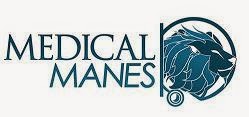A few folks who read my blog (and only a few folks read my blog!) mentioned to me that they found my articles of a couple of months ago on being responsible for having one's own up to date medical and medication history documented and how to produce and productively use that documentation, very helpful. If you haven't read those blogs, read them before reading on. The digitization of medical history- taking has moved the art of collecting as much relevant information about the patient and his/her complaints in order to understand and diagnose the illness to something quite different.
Designed by a systems engineer turned physician, the Problem Oriented Medical Record was originally conceived of as a means to logically define and number the patient's problems in a systematic organized manner, so that each numbered problem had a narrative that could be easily followed, together with its management and outcome. Instead, instead, the EMR has increasingly become a tool for administrators and politicians to gather information for their use, that allows them to control the health care industry in a manner that they feel will win them the most votes. In fact, they attribute the vital interaction between the patient and physician as being so unimportant that they are actively striving to eliminate the inexpensive complete history and physical examination from which that problem list is developed from the fee schedule altogether, in the interest of saving a few bucks. That is unfortunate, because it is during these consultations that the patient's medical and life circumstances are best discussed and the Problem List discussed. The careful examination of that list is what indicates to the physician what further investigations are required and indeed, allowed the physician and patient to go on to that process the administridiots have given the buzz-words of "Choosing Wisely" as though that were something new. Most of the "Choosing unwisely" is the result of excessive tests, generated from the necessity of physicians to defend themselves from the medico-legal lottery and the lawyers who profit from it. The information gathered in the course of the 'annual checkup' that was considered so valuable by both the patient and the physician, has become devalued by the expensive high tech commodities that so dazzle the folks today. Now patient's most frequent complaint is they don't have enough time to tell the doctor about their complaints. Some folks tell me, "I'm only allowed to tell the doctor about one complaint! Make another appointment if you have a second one!" The annual physical was the time to tell the doctor about ALL the complaints. that was what it was all about!
Tests are not any replacement for adequate history taking and examination. I used to tell my students and medical residents that by the time you have finished talking to the patient and taking the history and before even starting the physical examination, if you don't have a pretty good idea of what you are dealing with, go back and get more information. The tests and other investigations were to confirm or refute the hypothetical diagnosis, not a fishing expedition to see what one could find.
Recently, a friend of mine who had a significant past medical history, presented at the emergency room with a significant but non life-threatening condition. She commented on the benefit of having her self prepared documentation as per my recent blog, in the following manner:
"They really don't have time to take a proper history,they are so busy,"she said, excusing them. " I'm not quite sure whether they were students or interns or what. They did take a cursory history,. One seemed quite interested and the other was yawning away, while the first one was typing away and focused on the screen. When I presented my written history, they both seemed impressed and the one a the keyboard asked, how did you learn to do this? Can I keep it?" She specifically mentioned that there was almost no eye contact during the whole interview.
As the electronic medical record moves away from its specific focus on collecting information for improving medical care and sharing medical data among health care professionals and becomes increasingly a tool for measuring other things that administrators want to collect, it actually becomes an increasing barrier between the patient and physician. There is no doubt that physicians who use this technology spend more time typing and gazing at the computer screen and dealing with included data mining often not directly related to patient care and most agree that it is more time consuming than the written record.
A recent complaint from 100 doctors in Nanaimo, BC who refused to use the exorbitantly expensive system that the hospital had introduced, was that the computer was changing their orders, drug doses and notes without even letting them know. Not an acceptable situation.
The design of electronic medical records need drastic overhauling with most of the input coming from those who use it daily for patient care and not from those who wish to use it as a business tool. That requires a different system altogether.
Let me know if you care about any of this stuff, otherwise I'll move on to something else!

No comments:
Post a Comment